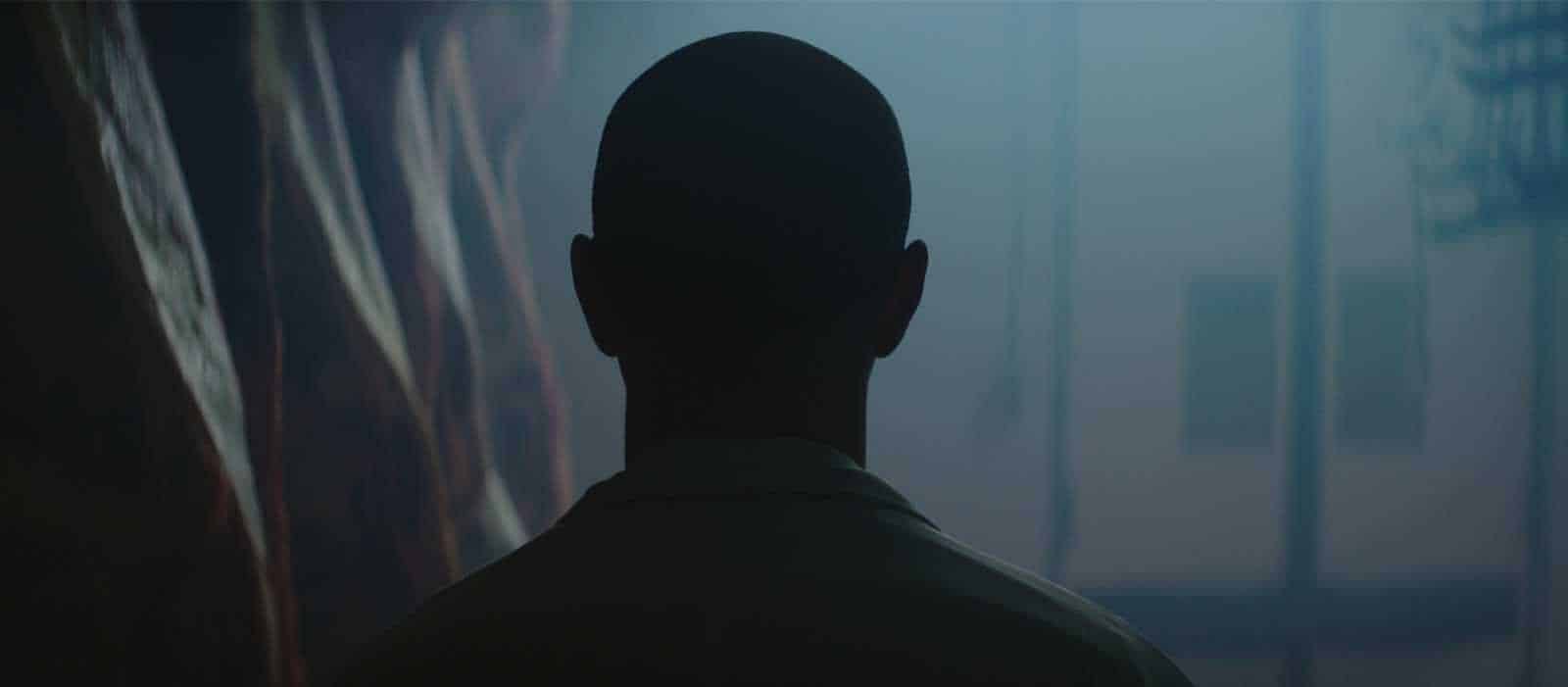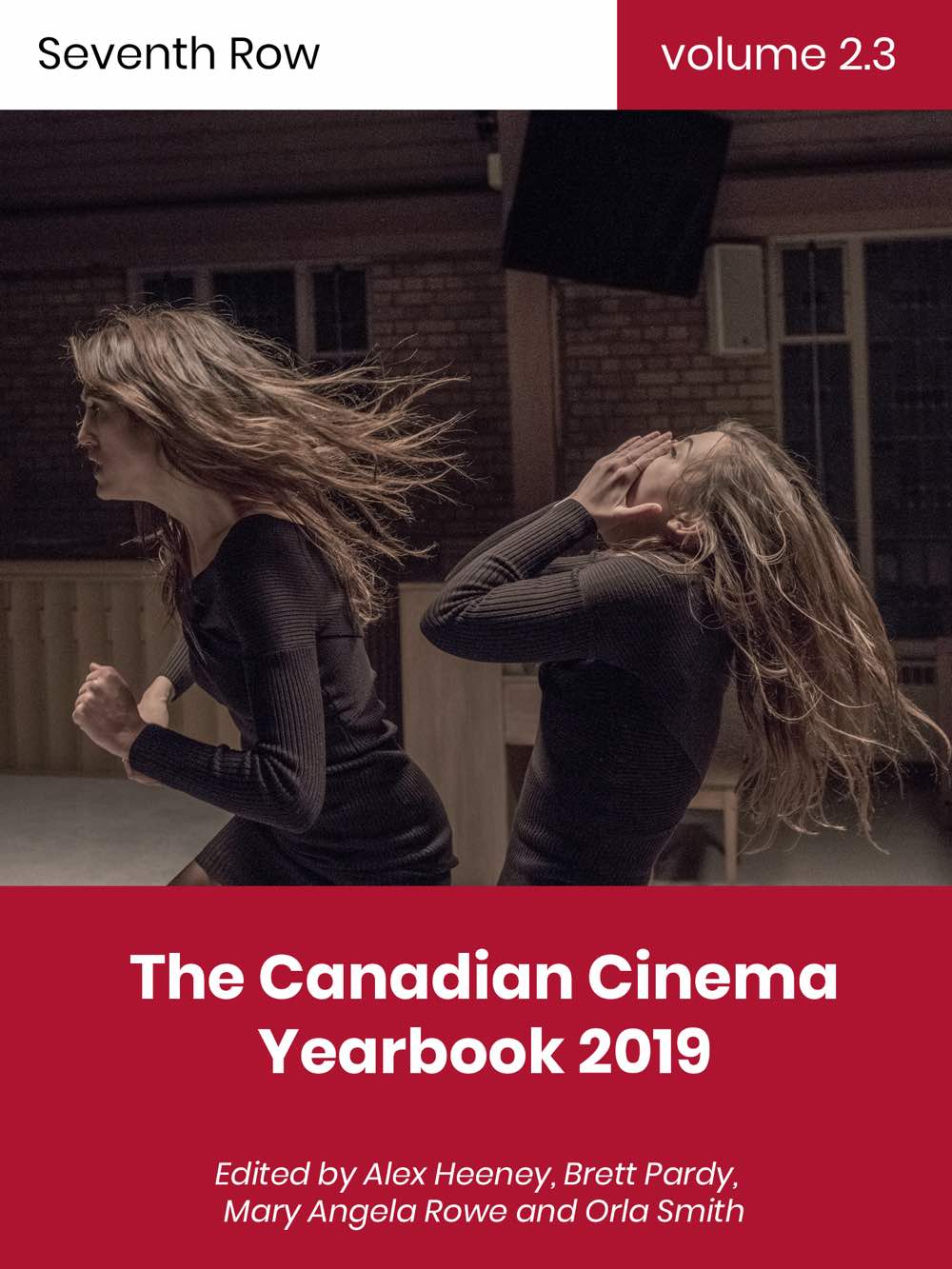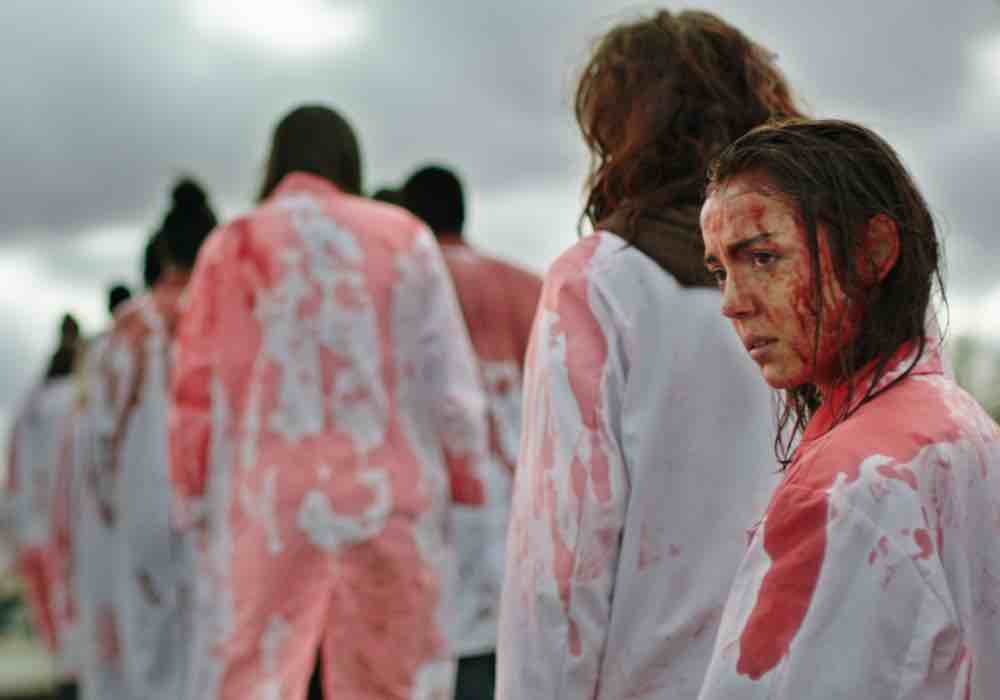Kevan Funk’s Hello Destroyer is a hockey movie where the drama is not in the game, but in how its violence has consequences that ripple off the ice.

“Hell, I wasn’t born a fighter… Nobody goes out to play street hockey and dreams about getting into a brawl in the Stanley Cup Finals. You dream about scoring the goal. But then … life just gets in the way. You become a product of your environment.” – Former NHL enforcer Rich Clune
Canadian films tend to depict the nation’s multicultural urban spaces, picturesque coastal villages, or extreme wilderness. Kevan Funk’s Hello Destroyer dwells instead in the liminal spaces that make up much of Canada: small cities populated by white people who drive pickup trucks and trek through strip mall parking lots filled with dirty, melting snow. Many of these cities, like Prince George in northern British Columbia, have major junior hockey teams in which 17 to 20 year old boys accept poor pay for a chance to audition for National Hockey League scouts. Crowds gather at their games to see teenage boys punch each other in the face. The sport is so popular across Canada that the film provides little exposition and depends on the audience being already familiar with hockey’s rules and organization. Hello Destroyer is a hockey movie where the drama is not in the game, but in how its violence has consequences that ripple off the ice.
[clickToTweet tweet=”HELLO DESTROYER is a hockey movie where the drama is not in the game.” quote=”Hello Destroyer is a hockey movie where the drama is not in the game, but in how its violence has consequences that ripple off the ice.”]
In major junior hockey, players must walk a thin line between what their coaches deem acceptable and unacceptable violence. If players avoid violence, they risk being seen as “soft” by their teammates and employers. Hello Destroyer follows Tyson (Jared Abrahamson), a rookie on the Prince George Warriors, who accidentally crosses that line and faces devastating consequences. At a home game when the team is trailing, the coach, Dale Milbury (a name referencing two notorious champions of hockey violence, Dale Hunter and Mike Milbury), demands that the team “protect the house”. Eager to prove his worth, Tyson throws an illegal check that slams an opposing player face-first into the boards, leaving his opponent with broken vertebrae and a brain hemorrhage.
Read more: Unlearning toxic masculinity in the Dardennes’ La Promesse >>
Televised hockey tends to glorify cheering for violence but provides no explicit reminder of any physical consequences. Hello Destroyer breaks this convention and does not sanitise the violence. In Funk’s hands, a fight is not heroic, gladiatorial combat, but sweaty, desperate grappling, conveyed through the thudding of fists, cries of pain, and, loudest of all, the cheering crowd. The injurious hit is the film’s only wide shot of hockey action, and Funk frames it so that we can see spectators’ reactions behind the glass. The fans are initially horrified, but their expressions quickly change to delight as fights break out over the prone body of the injured player. Funk frames the fights themselves in claustrophobic close-ups, frequently shifting focus, and never quite providing a clear view as the punches connect. The effect is alienating, and it forces an audience familiar with hockey fights to confront their brutality. Funk implicates fans for enabling violence by foregrounding the pleasure on their faces and the players’ pain through the physical ugliness of the fight.
[clickToTweet tweet=”In HELLO DESTROYER, a cultural problem becomes an individual pathology.” quote=”A cultural problem becomes an individual pathology.”]
A cultural problem becomes an individual pathology. Although Tyson correctly interpreted his coach’s orders, the line between honourable and dishonourable violence is razor thin. If the opponent’s body had been in a slightly different position, at a slightly different millisecond, fans would cheer Tyson and the coach would praise him for energizing the team. Instead, Tyson is kicked out of the game, suspended indefinitely, and ultimately shunned. The coach and general manager pretend that their lawyer is there to help both Tyson and the team, but the prepared statement they draft shifts the blame solely to Tyson. He signs that “what happened on Friday night was not at all a reflection of the values or culture of the Prince George Warriors”. This allows the organization (and its fans) to wash its hands of responsibility for hockey’s darkest moments while its fans continue to delight in violence that approaches the line.

Tyson’s billet family are the perfect example of how this double standard reverberates beyond the rink. Before the incident, they are proud hosts because they see Tyson as a role model for their young son. Yet they also joke about getting hockey players rather than Rottweilers for home security: it’s players’ control of their violent capabilities that makes them admirable as men. After the incident, though, they live almost in fear of Tyson. The billets quickly demand that Tyson leave because he’s no longer seen as a positive role model.
Read more: Francis Lee discusses his Sundance Directing Prize Winner God’s Own Country >>

Despite what dozens of Canadian television commercials may claim, hockey, Tyson now sees, does not provide life skills. With nowhere to live and nothing to do while serving his suspension, Tyson returns home, hoping to find support and forgiveness. Instead, he meets only further shame. His parents say little to him, as if not talking about the incident will make its repercussions disappear. Tyson learns to expect little from them, and gets less — at one point, he even pretends to be asleep to hide his tears from his father. Their only advice is to get to work, echoing the frequent refrain of hockey coaches that with “hard work”, you can overcome anything.
Read more: Top 5 films performances of 2016 that deserve a closer look >>
Tyson begins working at a slaughterhouse, cinema’s go-to metaphor for disposable labour. Rather than finding a job that could set him on a new path, this tedious yet bloody work eerily mirrors his treatment by junior hockey: he’s a disposable body whose fate no one wants to think about. At work, he attempts to talk to another ex-hockey player, but his inarticulateness and the wall of masculine toughness he’s internalized make reaching out a challenge. Tyson’s depressive spiral results in a DUI after a night of drinking with his co-worker’s beer league hockey team. His father responds cruelly, slapping him and admonishing him, “Do you have any idea what we’ve been through?” Rather than recognizing this as a cry for help, Tyson’s father acts like he is also a victim of the hit.
[clickToTweet tweet=”Tyson made one mistake and now he’s a disposable body whose fate no one wants to think about.” quote=”He’s a disposable body whose fate no one wants to think about.”]
Hockey destroys Tyson: his entire identity becomes shaped by the disastrous accident that resulted from his coach’s orders. At Tyson’s trial, the team effectively disowns him, pointing to the DUI as evidence of Tyson’s poor character although it’s arguably a direct result of the team spurning him. Tyson’s community doesn’t see hockey as just one aspect of Tyson, but as his entire identity. It’s an unforgiving, all consuming culture. Even the people around him who are not within the game share the mentality that his hit and DUI reflect Tyson’s essential character, not the result of values instilled by a life in hockey.
[clickToTweet tweet=”In Tyson’s rural bubble, it seems like there’s nothing beyond hockey.” quote=”In Tyson’s rural bubble, it seems like there’s nothing beyond hockey.”]
In Tyson’s rural bubble, it seems like there’s nothing beyond hockey, and Tyson never seeks out a world elsewhere. Banished from the only world where he finds purpose, Tyson attempts suicide. Unlike the frequent refrains of hockey coaches and broadcasters, which Tyson’s family repeats, not all problems can be solved simply by working harder. Tyson was caught up in a destructive system where someone outside of it needed to help him out. The hypocrisy within hockey is that everything good in the game, from victories to the supposed character development is the result of teamwork and grit. But anything bad from a culture that encourages toeing the line of violence is solely the fault of the player, not the game.
Read more: What does Canada’s Top Ten of 2016 say about Canadian cinema? >>


